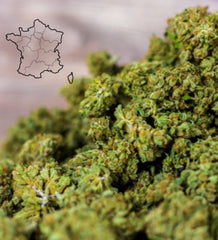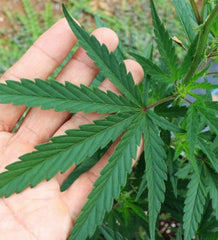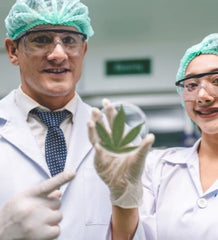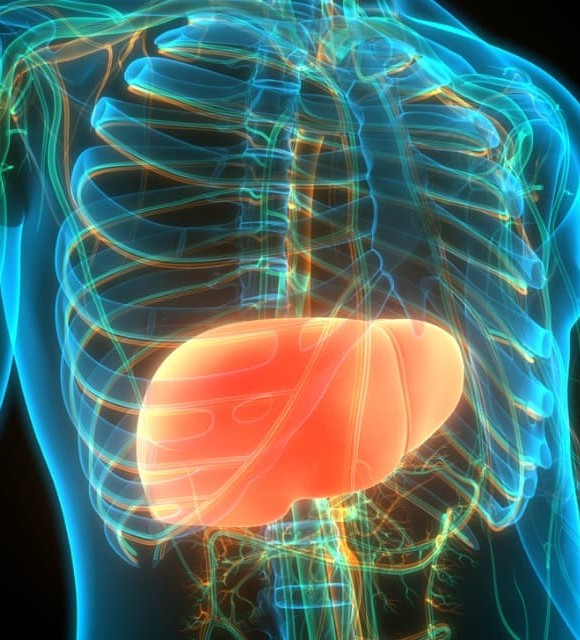
Liver health: a CBD-based detox cure
Can CBD Maintain Liver Health?
What is CBD?
Cannabis is an umbrella term for psychoactive substances prepared from the plant genus Cannabis sativa. The primary and most potent psychoactive ingredient in cannabis is tetrahydrocannabinol (THC). Cannabidiol (CBD) is an additional cannabinoid also found in Cannabis sativa plants. CBD does not produce any psychoactive effects. In Europe, CBD is legal when the THC content in the plant is less than 0.3%.
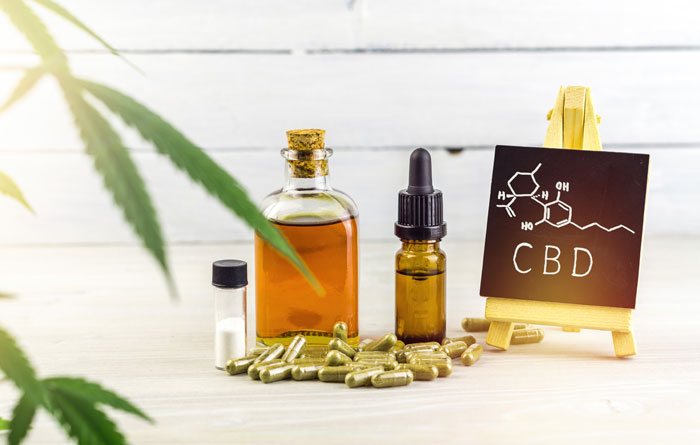
What are the effects of CBD on the liver?
Recent studies suggest that CBD offers anxiolytic and antipsychotic effects . It has also been shown to have anti-inflammatory effects and can modulate the immune system response. Additionally, it has an excellent safety profile in humans, even after chronic use.
CBD has been studied as a possible therapeutic target in various gastrointestinal diseases such as irritable bowel syndrome, inflammatory bowel disease, and other diseases involving the gastrointestinal tract. It has also been studied in the management of other symptoms such as nausea and vomiting , cannabinoid hyperemesis syndrome , anorexia , weight loss, and chronic abdominal pain .
Currently, there is little information regarding the use of cannabis for liver disease. There are many unanswered questions regarding the health effects of long-term cannabis users and the effect of medical cannabis on liver health.
Endocannabinoids are associated with pain, inflammation, mood enhancement, and energy utilization and conservation. Endocannabinoids are associated with fat accumulation by increasing lipogenesis throughout the body, decreasing the rate of lipolysis, and stimulating appetite.
How does CBD work on the liver?
From a scientific perspective, cannabinoids act on the CB1 and CB2 receptors of the endocannabinoid system . CB1 is primarily expressed in the brain and also in the periphery, while CB2 has been detected in the periphery, immune cells, liver, pancreas, brain, hematopoietic system, and bones. CB1 and CB2 receptors are involved in various pathological processes, making them particularly interesting therapeutic targets.
While the functions of the CB1 receptor have been extensively studied, CB2 receptors have emerged to play a role in the regulation of inflammation, pain, atherosclerosis, and osteoporosis. The development of selective CB2 molecules has generated interest as novel targets in drug research. CB2 receptors have been shown to have a restorative effect on chronic and acute liver injury, including fibrogenesis associated with chronic liver disease, hepatic reperfusion injury, and hepatic encephalopathy associated with acute liver failure.
CBD has demonstrated anti-inflammatory, antioxidant, and hepatoprotective effects in clinical studies. Both CBD and THC have demonstrated therapeutic potential in chronic liver diseases involving inflammatory changes and fatty degeneration, hence the potential to improve liver health.
How does medical cannabis help with alcoholic liver disease?
Chronic alcohol consumption is a major cause of alcoholic liver disease, which can eventually progress to cirrhosis or hepatocellular carcinoma in susceptible individuals. It is characterized by metabolic dysregulation, increased oxidative stress , inflammation, and steatosis in the liver.

A significant number of people who abuse alcohol also use tobacco and/or cannabis. Despite significant advances in understanding the pathology of alcoholic liver disease, treatment options for it are still very limited.
Recent studies have shown that using CBD for alcoholic liver disease can have a protective effect on the organ in question. In this study, cannabis use was associated with reduced rates of alcoholic fatty liver disease, hepatitis, cirrhosis, and hepatocellular carcinoma.
Another 2014 study by a Japanese university showed that CBD has a positive effect on alcohol-induced fatty liver disease, or hepatic steatosis. Fatty liver disease occurs when too much fat accumulates in liver cells. It can be caused by heavy alcohol consumption. While the fatty deposits usually disappear if alcohol consumption is stopped, it can lead to liver enlargement, hepatitis, and eventually cirrhosis if alcohol consumption continues.
CBD has been shown to have a preventative effect on alcohol-induced liver damage and also causes a decrease in blood alcohol levels when taken with alcohol. CBD's main mechanism of action is to prevent increased oxidative stress and increase alcohol-induced autophagy , leading to healthier liver cells .
How does CBD help with viral liver disease?
Currently, there is no human data regarding the role of cannabis in chronic hepatitis B, but cannabis has been found to have no effect on the virus in vitro. Most studies have been conducted in patients with chronic hepatitis C (HCV) and HIV.
Regarding patients with viral liver diseases taking medical cannabis to relieve some of their symptoms, it has been found that it does not accelerate the progression of liver disease in patients coinfected with HIV and hepatitis C.
Previous studies have suggested that cannabis use leads to increased steatosis, fibrosis, and worsening of HCV. However, recent observations and reports have revealed that cannabis use has no effect on HCV disease progression. Some reports have even revealed that cannabis use is associated with a reduction in steatosis in individuals infected with HCV.
However, it is important to note that the results also showed the possibility that increased cannabis use is associated with higher risks of liver fibrosis progression. The general consensus is that only high daily cannabis use is generally associated with the development of liver fibrosis and can affect liver health.
Which CBD format should you choose to promote liver health?
CBD can be consumed in a variety of ways: flowers , resins , e-liquids , or even herbal teas . But the most recommended option for promoting liver health remains CBD oil . The latter can be used:
- sublingually , by pouring a few drops under the tongue using a pipette;
- in the kitchen , in the preparation of drinks and sweet or savory dishes.
This article was written by Sinapi editorial staff



